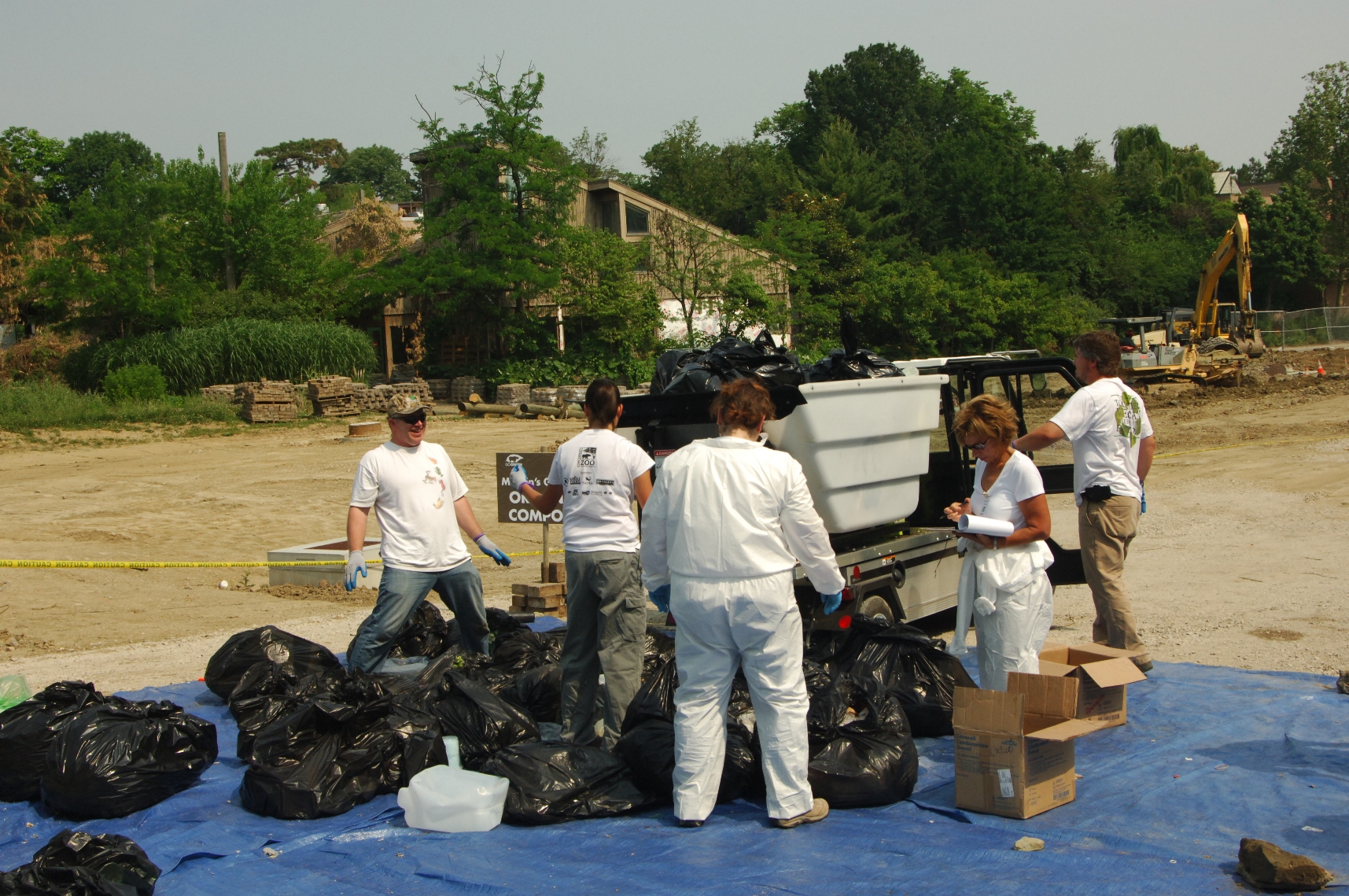Dumpster Diving for Zero Landfill Challenge
Cincinnati Zoo Executives Talkin’ Trash
CINCINNATI – (May 24, 2012) Nothing is too extreme for the Greenest Zoo in America! On Friday, May 25, Cincinnati Zoo executives, like Chief Operating Officer Dave Jenike and Senior Director of Facilities Mark Fisher, as well as numerous other employees, volunteers and friends of the Zoo sorted through tons of trash at the Zoo for 12 straight hours with the goal of “Zero Landfill.”
Participants sorted through approximately 1.5 tons of trash, collected over a 24-hour time span at the Zoo, and placing it in five categories – Marvin’s Gardens Organic Compost, Alternative Organic Compost, Rumpke Recyclables, Other Recyclables/Reusables/Preventables and Landfill).
Both visitor and employee waste was collected and then dumped on the future site of the Zoo’s new Africa exhibit, where the actual sorting process took place. Volunteers placed the trash into three different categories based on whether or not the waste is organic, recyclable or needs to be placed in a landfill. Once the trash is sorted, volunteers will be responsible for recording the percentages of each of the categories. By analyzing the percentages, the Zoo will be able to better understand how to organize waste deposits throughout the Zoo’s area and move forward toward its long-term goal of having no waste going into the landfill.
“The Cincinnati Zoo is continually looking for ways to challenge itself as the Greenest Zoo in America,” said Dave Jenike, Chief Operating Officer at the Cincinnati Zoo. “In an effort to truly understand what needs to be done to get to a zero landfill status, the Zoo must first understand the waste habits of its employees and its visitors. The findings of these dives will allow us to make deliberate and effective changes to our trash collecting methods, putting us one step closer to zero landfill.”
The first Zoo Dumpster Dive was held at Rumpke’s landfill and approximately 9.6 tons of trash was collected and sorted through. From this sorting process, 3.5% of materials sorted were recyclable, 49% were compostable and the rest was deemed landfill material.

